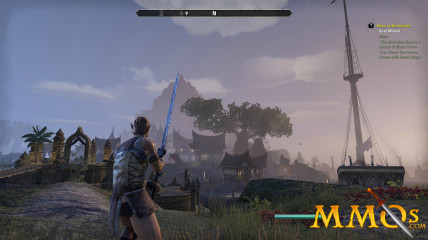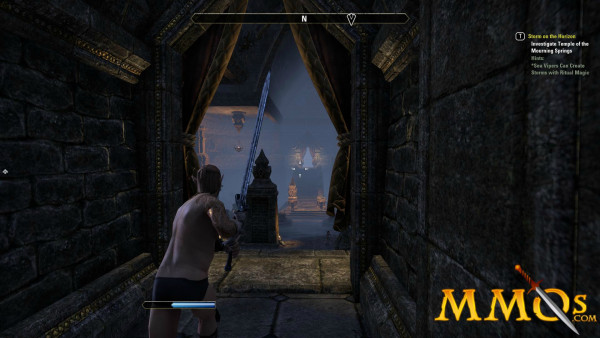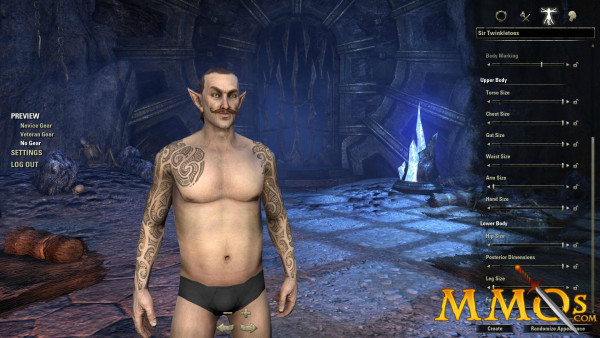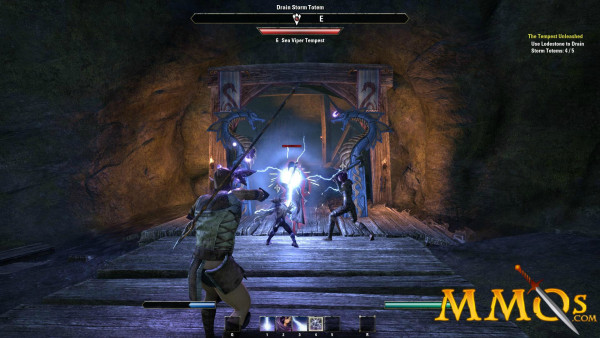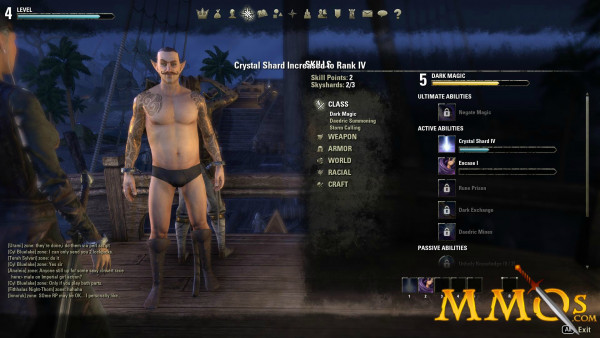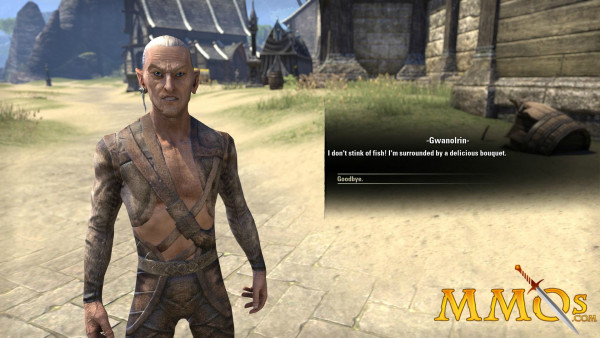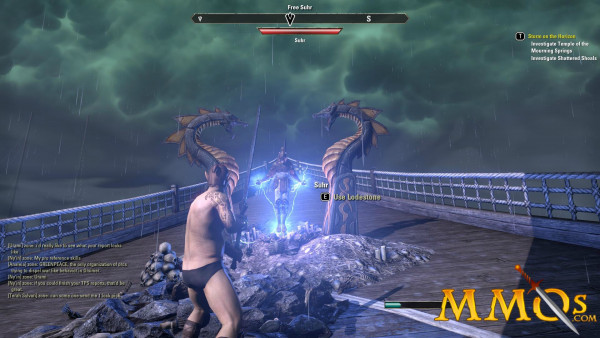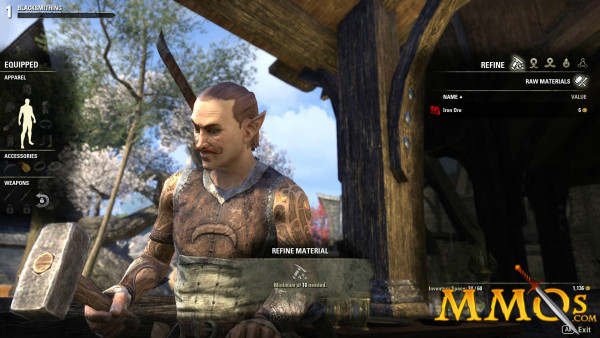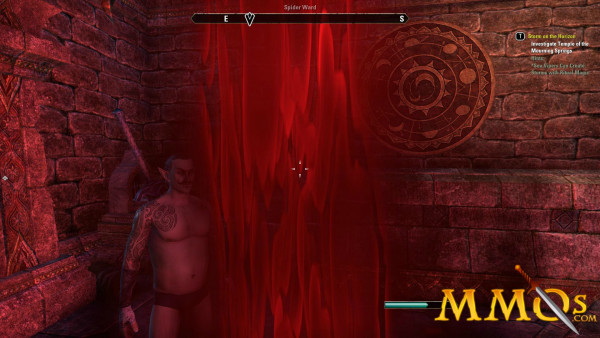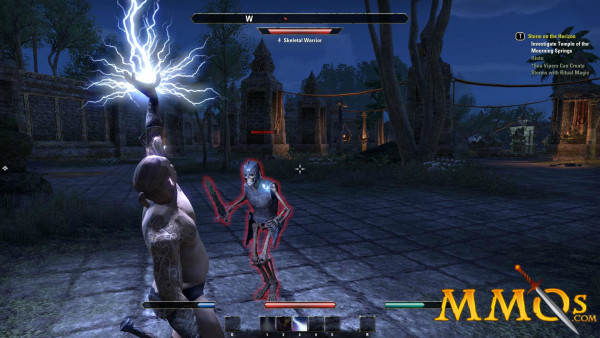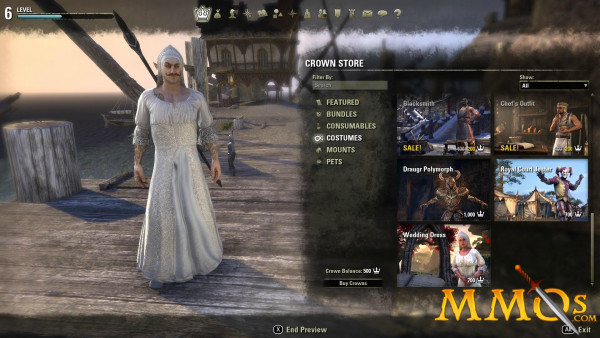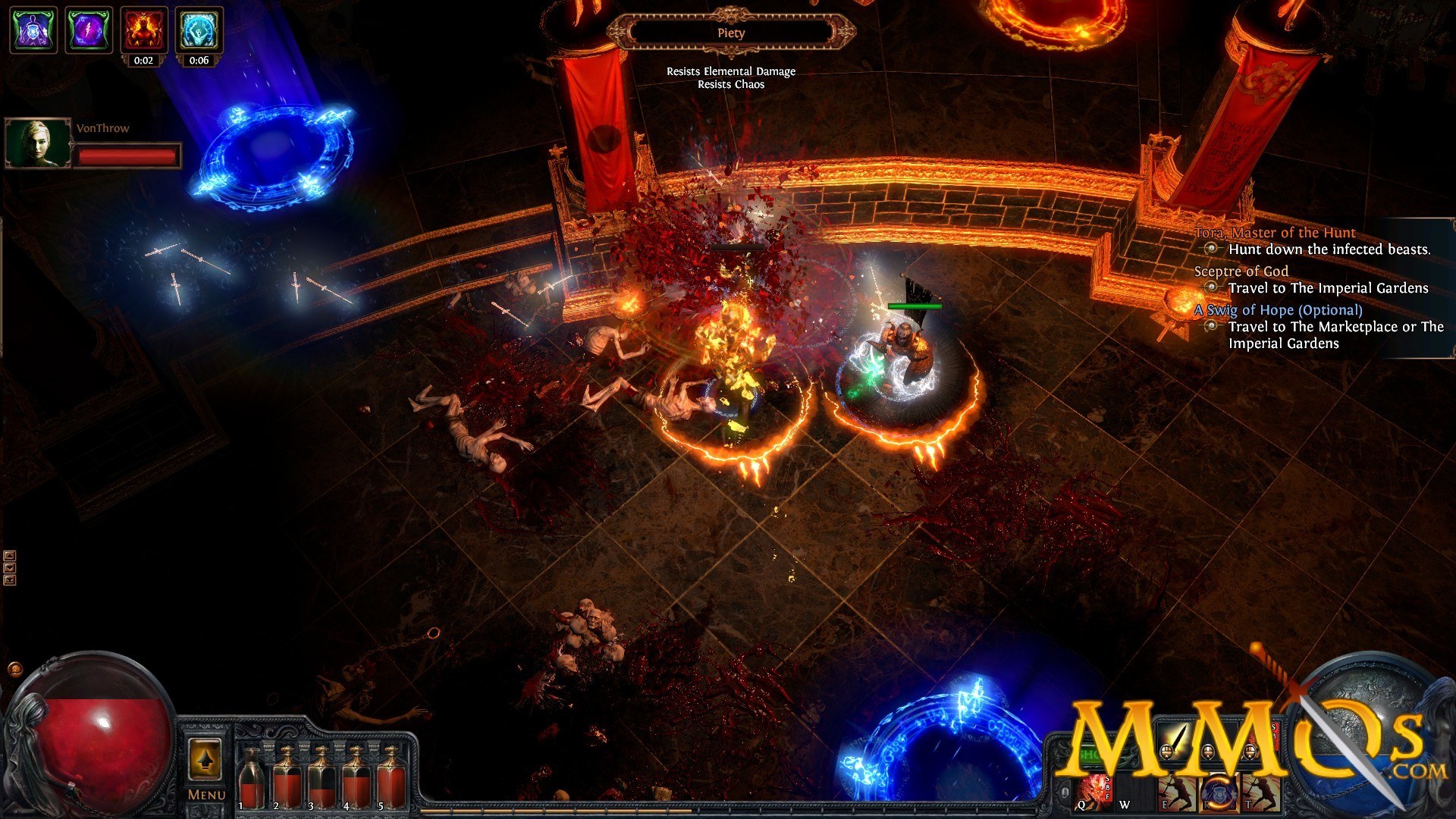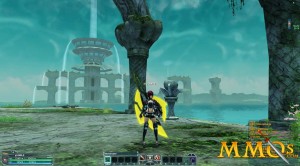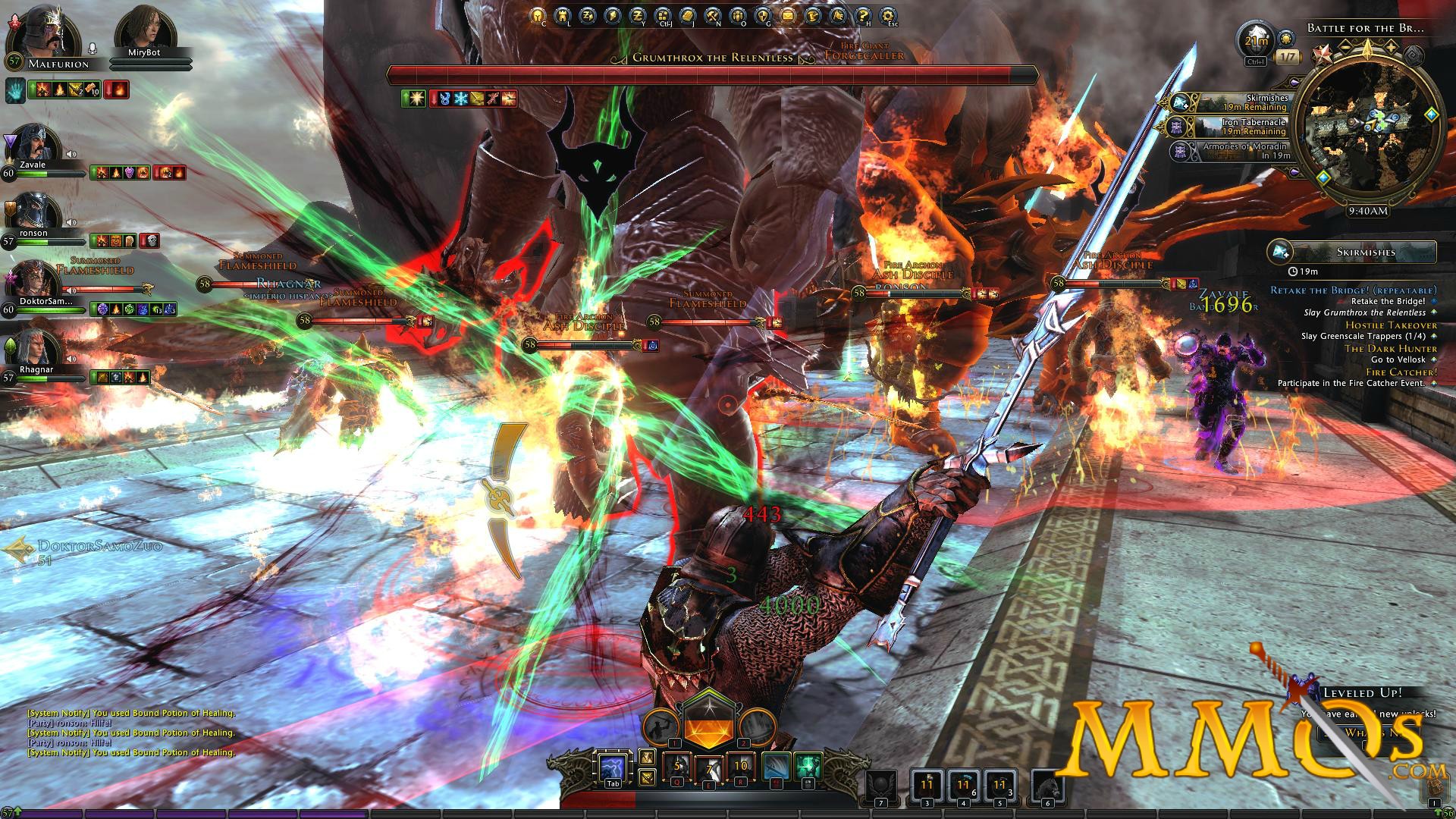Elder Scrolls Online
Elder Scrolls Online is a fantasy MMORPG set on the sprawling continent of Tamriel. Choose between three factions and four classes to customize your character. An open-ended skill system lets you fight monsters and other players or steal and murder NPCs as you please.
| Publisher: Bethesda Softworks Playerbase: High Type: MMORPG Release Date: April 4, 2014 PvP: Alliance Wars (Faction Wars) Pros: +Player choices affect the world. +Active combat. +Steal, pickpocket, and & murder NPCs. +Expansive PvP system. Cons: -Known bugs. -Huge installation. |
Elder Scrolls Online Overview
The Elder Scrolls Online is an MMORPG inspired by the franchise of the same name. Players choose between nine races and four classes—Dragonknight, Templar, Sorcerer, and Nightblade—to determine abilities. An open-ended skill system allows skill customization in line with other Elder Scrolls games, such as choosing to be a Sorcerer that wields a two-handed sword. Your race determines what alliance you belong to in a war for the Imperial Throne. Grand-scale PvP battles involve more than just team deathmatch skirmishes: collect resources, assist citizens, and capture objectives. The world reacts to your decisions in quest chains. Ambiguous moral decisions may see villages thrive or become decrepit keeps patrolled by ghosts. Operating outside the law, players can steal and murder NPCs but injustice puts a bounty on your head or summons guards to exterminate your wrongdoing. The game launched as Elder Scrolls Online but was renamed to Elder Scrolls Online: Tamriel Unlimited upon dropping its subscription.
Elder Scrolls Online Key Features:
- Player Choice – world evolves based on your decisions during quests.
- Justice System – kill and steal from NPCs while avoiding detection
- Voice-Acting – every NPC features extensive voice-acting.
- Open-Ended Skill System – highly customizable playstyle with large skill tree.
- Large Scale PvP Zone – features siege battles, quests, and scouting.
Elder Scrolls Online Screenshots
Elder Scrolls Online Featured Video
Elder Scrolls Online Review
By Sean Sullivan
About a year ago, I was invited to test the Elder Scrolls Online (ESO) beta. After my weekend was up, I couldn’t rationalize investing the hefty upfront cost ($60) to buy the game plus the monthly subscription. It didn’t capture my attention for numerous reasons, and many friends felt the same. But over a year later, I’ve reinstalled ESO now that the game dropped its subscription and embraced a purely buy-to-play model, a la Guild Wars 2. ZeniMax Online has spent a lot of time since release vastly improving Tamriel. At the end of my first session, I actually felt enthralled, a feeling rarely felt after a game has disappointed me in the past. This isn't a typical Elder Scrolls game but it's a finely polished MMORPG.
Designer Heroes
The world of Elder Scrolls Online is fueled by a war between three factions vying for control of the Imperial City. The race you choose to play determines your allegiance. So, if you plan to play with friends, you better coordinate. The Aldmeri Dominion features the Altmer, Bosmer, and Khajiit; the Daggerfall covenant is composed of the Bretons, Orsimer, and Redguards; the Ebonheart Pact features the Nord, Dunmer, and Argonian races. They don’t necessitate a particular playstyle but do dictate racial abilities.
I chose to play a High Elf—male of course—due to their natural affinity for destructive spells and increased rate of magicka regeneration. Various sliders allow you to make subtle changes to your character's body and face that add up to an avatar with a distinguished appearance. While some of those changes were difficult to ascertain at first—such as “Posterior Dimensions” referring to “gluteus maximus” (a slider I maxed out)—their nuances become apparent as you spin your character model. With a moustache to make every audience swoon, tattoos acquired while vacationing in Cancun, and a pot-belly stomach, my debonair character was complete. Sir Twinkletoes the Sorcerer would collect moonsugar to fulfill his lifelong dream of operating a Skooma den.
Combat
Elder Scrolls Online’s foundation is an active combat system inspired by the single-player games. Left-click swings your blade, right-click defends, and charging your light attack by holding left-click unleashes a heavy swing. Pressing both right and left-click simultaneously interrupts enemy attacks, a particularly useful skill when combatting casters. A dodging mechanic that drains stamina, similar to Guild Wars 2's endurance-based dodge, lets you roll out of harms way. Given enough stamina, you can roll around enemies and chip away at their health. Or, sit back and use skills hotkeyed 1-5 and an ultimate attack bound to “R” to dish out damage.
It’s an engaging system that’s immensely satisfying once you're familiar, and combat becomes fast-paced and fluid. While five hotkeys may seem limited, I never felt the need for more skills. Furthermore, skills can be swapped out when not in combat. ESO’s tight mechanics remind me of Diablo 3 where I would create a melange of skills to find the perfect combination for my monk. As a sorcerer in ESO, I would sprint into battle casting Encase to trap my enemies in Daedric shards before bombarding them with Crystal Shard. Don’t worry about dying. The penalty is quite minor—you walk away with damaged gear and possibly spawn at a distance if you’re not fitted with a soul gem.
Skills
I thoroughly enjoy the skill system in ESO, particularly for the variety of skill lines to choose from. Class skills—if not intuitive— are abilities unique to your class. As a Sorcerer I have access to Dark Magic, Daedric Summoning, and Storm Calling skills—all variations of magicka. Then there are skills for weapon proficiencies and armor efficiencies. Even more, it’s open ended. I can don Daedric Quicksilver heavy armor and wield a bow as a Sorcerer; even if it is, perhaps, an egregious error. There are World Skills you unlock through exploration with features like Vampire and Werewolf skills along with PvP skills. Then there are racial skills and crafting skills. Every tree has passive skills that activate as soon as you place a point into them. It’s an enormous library that promotes experimentation.
When a skill is equipped to your hotbar, it gains experience along with the skill line it belongs to. So when I use Mage’s Fury to light up enemies, I’m gaining experience in Storm Calling skills. It is possible to rank up skills and never use them, so long as one skill in that skill line is being used. While not game changing, you can earn skill points apart from leveling. Completing certain quests will reward skill points. Items called Skyshards are scattered throughout the maps; absorbing three of them allots a skill point. They're both fine incentives that promote exploration and an additional reason to quest.
Questing
Following in the footsteps of every MMORPG that has ever existed, Elder Scrolls Online is littered with “Kill This,” “Collect That,” “Talk To Them” quests. But interspersing the monotony of routine questing is a collection of A/B choice quests that lead to various outcomes. A troubled NPC prompts you to pick between ambiguous options, with no clear morally right choice—or good/evil dichotomy. If you choose to immerse yourself in the game you will notice the impact of your decision.
Many quest choices affect the life or death of NPCs, determining how guards and citizens react to your presence. Choose to let a grieving mother act on revenge for her son and be chided by guards. Clear out a village of phantoms and see it revive as NPCs reinhabit their lost home. Do the choices truly affect gameplay? No, but it’s an added layer of immersion for players seeking an engaging story. If you don’t skip through quest text while listening to Math the Band, you’ll find yourself lost in the excellent voice-acted NPC’s and ambient background music, allowing yourself to be swept up in the Elder Scrolls Online universe.
Music and Sound
Elder Scrolls Online likes to boast that it is one of the only fully voice-acted MMOs. It does feature an impressive cast. Several actors were commissioned to provide voices: John Cleese, Kate Beckinsale, and Malcolm McDowell among others. Even minor characters are well-done, fleshing out ordinarily text-based personalities. Talk to a hobbled NPC and he’ll tell you a one-liner about the glories of fishing. Wandering beggars and merchants seem to breathe life and some of their dialogue had me actually laughing.
Combine voice-acting with the fantastic soundtrack composed by Brad Derrick and Rik Schaffer and you understand why this game recommends 60 GB of free space. It is worth it. The music fits the fantasy setting perfectly with mellow orchestras for towns and mysterious harps when exploring zones. Jeremy Soule, the “John Williams of video game music,” returned to the Elder Scrolls franchise to compose the theme song.
Crafting
While Elder Scrolls Online’s crafting system is rather simple to understand, it offers incredible depth. In most games, crafting is just a means to reap gold from the economy. In ESO, crafted items are typically better than purchased or rewarded items. So, a level 10 cloth piece will be better than a level 12 quest item. Everyone starts with basic skills in all six crafting abilities. As you quest and explore the map, you can collect resources by killing enemies, gathering flowers, or picking away at ore nodes. Then, return to town, find a crafting station, and choose what item you want to sweat over. Sir Twinkletoes looked majestic hammering away at a sword.
Graphics
Undoubtedly, the game looks nice. It’s polished and runs smooth. Only when clustered by innumerable buildings and players did I notice any hiccups. Spells are fluid, intricate, and mesmerizing. The lighting effects are particularly brilliant: trapped in a cell, incandescent torchlight flickered off the walls and my glorious moustache. Sunbeams easily sneak around the fighter's guild but must weave their way through the tree's foliage outside the immense structure.
While Elder Scrolls Online displays an immense amount of detail, it suffers from some lazy design choices. Buildings are copy-pasted as if they were designed by a drunk architect. It’s particularly noticeable when entering the interiors of buildings in the same town. While they may look unique outside, you’ll find the same tables in the same corners with the same grain sacks next to them. As you inevitably pop in and out of these buildings, it becomes noticeable, even disappointing when you’re greeted by the immense attention paid to the rest of the world.
Something I grew to love was the UI. It’s a minimalist design, only showing elements when they're needed. So I only see my green stamina bar as I run to and fro various citizens of Tamriel delivering messages. Avoiding clutter makes the world feel more grandiose. It’s clean, like a desktop background untouched by icons. Furthermore, zones feel huge in scale, not World of Warcraft-big but big enough.
Justice and Champions
Perhaps the most acclaimed addition to ESO is the Justice System. Previously, players were able to steal everything without fear of being caught. In the open beta, I walked into an NPC’s home and took all of his pants but felt bad when he continued to smile at me stupidly. In Elder Scroll games, guards are meant to beat you to a pulp if you’re caught stealing and the Justice System finally brings consequences to ESO. Murdering NPCs, pickpocketing them, and stealing from their homes places a bounty on your head. If you’re killed or apprehended, you will be losing gold as the bounty adds up. You can’t sell stolen items to just any NPC either but must track down a fence at Outlaws Refuge—typical to any ES game. Or, instead of being a scoundrel, you can become a Champion.
Every 400,000 XP gained after level 50 allots one point to be spent in the Champion System, granting powerful passive abilities. It’s broken into the three archetypes: Soldiers, Mages, and Thieves and looks similar to the skill constellations in Skyrim. Mage constellation focuses on offense, Thief on reduction costs, and Warrior on defensive bonuses. The points are account-wide so each of your characters can spend their points however they choose.
PvP
PvP is an intricate part of the Elder Scrolls Online story as the three alliances slaughter each other for control of the province of Cyrodiil. It’s not a battleground but a fully fleshed out zone with quests, stories, and missions. You can enter PvP after reaching level 10, where you’ll be tasked with capturing keeps, scouting enemies, and assisting citizens. Because of the Champion system, level 50+ characters play in their own PvP arenas.
Guilds
In ESO, you can join up to five player guilds at once. The main benefit is economical; there is no auction house. Once your guild has 50 players, you can bid on a guild merchant, allowing members to sell items to other players. It's quite an interesting addition. You can set up anywhere in Tamriel, such as by a lonely dirt road to hasten bankruptcy or in a bustling market. Without an auction-house to force ubiquitous pricing, guilds must price their items competitively. It’s a system that deters botting and creates a more active economy.
Cash Shop
Finally, we arrive at the cash shop. While Elder Scrolls Online is now buy-to-play, it’s Cash Shop does not substitute for the monthly subscription. It’s filled almost entirely with cosmetic items. None of them look too appealing either, as far as I’m concerned. There are some helpful items such as Potion packs and Repair kits but nothing that’s going to give an overwhelming advantage to a player.
Final Verdict - Excellent
I recommend Elder Scrolls Online. Combat is fluid and fun with a wide array of skills at your disposal to cater to any playstyle. The environments are gorgeous, although some lazy design choices are evident. The music suits the world perfectly and voice-acting immerses you in the experience. The Justice System shows that ZeniMax Online cares about the game and wants to create a world for players to enjoy. While it's first year was a rough start, Elder Scrolls Online is in good hands.
Elder Scrolls Online Videos
Elder Scrolls Online Links
Elder Scrolls Online Official Site
Elder Scrolls Online Wikipedia
Elder Scrolls Online Wikia [Database/Guides]
Elder Scrolls Online Gamepedia [Database/Guides]
Elder Scrolls Online Reddit
Elder Scrolls Online Requirements
Minimum Requirements:
Operating System: Windows XP 32 bit
CPU: Core 2 Duo E4400 2.0GHz or Athlon 64 X2 Dual Core 4600+
RAM: 2 GB GB RAM
Video Card: GeForce 8800 GT or HD i7 2600
Hard Disk Space: 60 GB Free Space
Recommended Requirements:
Operating System: Windows 7 64 bit
CPU: Core 2 Quad Q6600 2.4GHz or Phenom 9750 Quad-Core
RAM: 4 GB RAM
Video Card: GeForce GTX 560 Ti or Radeon HD 6950
Hard Disk Space: 80 GB Free Space
Mac Minimum Requirements:
Operating System: OS X 10.7.0 or later
CPU: Intel Core 2 Duo
RAM: 4 GB RAM
Video Card: Intel HD Graphics 4000, GeForce GT 330M, or Radeon HD 6490M or better
Hard Disk Space: 60 GB Free Space
Mac Recommended Requirements:
Operating System: OS X 10.7.0 or later
CPU: Intel i5
RAM: 4 GB RAM
Video Card: GeForce GT 650M or Radeon HD 5770 or better
Hard Disk Space: 60 GB Free Space
Elder Scrolls Online is compatible with Mac OS X
Elder Scrolls Online Music
Elder Scrolls Online Additional Information
Developer(s): ZeniMax Online Studios
Publisher(s): Bethesda Softworks
Engine: HeroEngine
Release Date: April 4, 2014
Steam Release Date: July 17, 2014
Announcement Date: May 3, 2012
Subscription Cessation Date: March 17, 2015
- Morrowind Expansion Release Date: June 6, 2017
- Summerset Expansion Release Date: May 21, 2018
- Elsweyr Expansion Release Date: June 4, 2019
- Greymoor Expansion Release Date: May 26, 2020
- Blackwood Expansion Release Date: June 1, 2021
Other Platforms: Mac OS X, PS4, Xbox One
The Elder Scrolls Online was developed by ZeniMax Online Studios and published by Bethesda Softworks. ZeniMax Online Studios was formed in 2007 and headed by Matt Firor, an 11 year veteran of Mythic Entertainment. They partnered with American online game company Simutronics to use the HeroEngine 3D game engine. The Elder Scrolls Online is ZeniMax Online's first MMORPG. ESO was publically announced on May 3, 2012 in an interview with video game magazine Game Informer. On April 4, 2014, it was released for PC and Mac OS X. Initially, the game required a subscription fee to play. But on January 21, 2015, it was announced that the active subscription would no longer be needed to play, effective March 17, 2015. The Elder Scrolls Online is also available on consoles (no cross-play).
